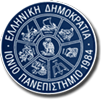Burgas
Greek community

Author: LYBERATOS ANDREAS
Greeks were among the first inhabitants of the settlement of Burgas, most of them came from older neighboring coast settlements (Anchialo, Sozopolis, Mesimvria etc.) and were occupied mainly in fishing and trade. During the Russian-Turkish war of 1828-29 the Greek-Orthodox were according to a Russian source approximately 40% (116 houses) of the population of the city which had a Muslim majority.[1] The Greeks, older inhabitants and newcomers, developed after the 1840s and especially after the Crimean War (1853-56) to the socio-economically dominant community of the city, controlling much of the grain export trade.[2] In a similar fashion to Varna, a Bulgarian community broke away in 1864-65, causing the definite “Hellenization” of the remainder Orthodox community of the city. The relations between the two communities were however less conflictual compared to other cities of the Central and Eastern Balkans affected by the Greek-Bulgarian church dispute. After the city’s incorporation to Eastern Rumelia (1878) and Bulgaria (1885), the Greek community continued to flourish economically and culturally (schools & philanthropic institutions), comprising until the beginning of the 20th century between one fourth and one third of a predominantly Bulgarian-inhabited city. The 1906 anti-Greek disturbances did not lead to mass emigration of the Greeks of Burgas to Greece, a phenomenon which proceeded more gradually in the 1920s under the provisions of the Greek-Bulgarian voluntary exchange of population.[3]
[1] Enecholm, G., Notice sur le villes situées au-dellà des Balkans, ocupées par les Troupes Russes pendant la glorieuse champagne de 1828, Sankt-Petersburg, 1830.
[2] Kotzageorgi, X., “The Greek Community of Burgas: Education and Culture”, Etudes Balkaniques, 1994, no 1, 79-85.
[3] Κοτζαγεώργη, Ξ. (επιμ.), Οι Έλληνες της Βουλγαρίας. Ένα ιστορικό τμήμα του περιφερειακού ελληνισμού, Θεσσαλονίκη 1999, p. 155-156.
Back




